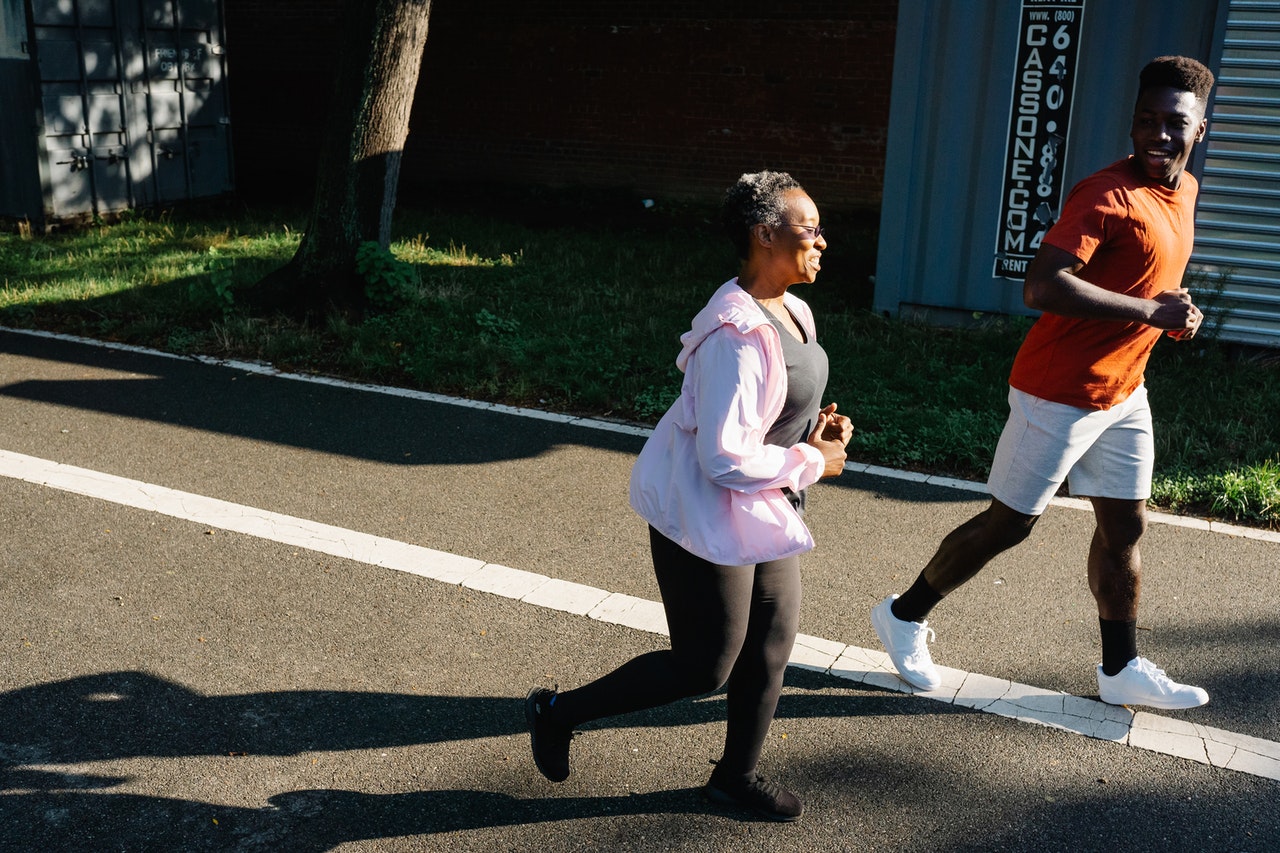What Happens To My Hormones In Postmenopause, And How Does That Impact Weight


Even though there is no such celebration for the end of a woman’s reproductive cycle, some cultures are more supportive than others in this transition period of a woman’s life. In places like Japan, even the word for menopause has positive connotations. Konenki, the Japanese word for menopause, means renewal and generation. That may be why Japanese women do not see menopause as something dreadful as is sometimes the case in the west. Menopause can be an opportunity for reinventing yourself; it’s a new phase of your life.
What are Perimenopause, Menopause, and Postmenopause?
When not medically induced, menopause follows a natural gradual process divided into three main stages: perimenopause, menopause, and postmenopause.
Perimenopause to Menopause Transition
The word perimenopause results from combining the Greek word “peri” which means around or near, and menopause, so it means “near menopause”. Perimenopause differs significantly from woman to woman. Though the average duration is three to four years, it can last a decade, and it can start as early as in your 30s. However, it is most common that perimenopause happens in your 40s.
Symptoms are not the same for every woman, but experts agree that it starts with irregular periods due to the decline of ovarian function. Nonetheless, some women may experience heavy periods and hot flashes. The changes associated with perimenopause are directly related to hormonal variations, especially estrogen.
Menopause
A woman enters menopause when she has experienced 12 straight months of no menstruation. The average age of menopause is 51 years old. However, around 1% of women start menopause before 40 years old and 5% between 40 and 45 years of age. (1)
How a woman experiences menopause can vary greatly depending on various factors such as lifestyle choices like smoking. Recently, studies have also explored the relationship between menopause and race. Some found that Black women take longer to transition to menopause, or Latino women experience more vaginal symptoms such as dryness and painful sex. (2)
Some common symptoms of menopause are insomnia, weight gain, anxiety, vaginal dryness, memory problems, urinary tract infections, headaches, racing heart, and some more. Also, an estimate of 75% of women experiences hot flashes during menopause.
Postmenopause
A woman is considered to be in postmenopause when they have not had a menstrual period for more than 12 months. During this phase, many of the symptoms experienced during perimenopause and menopause may cease. However, some women may still experience certain symptoms for up to a decade longer. In the postmenopause stage, hormones will stay at consistently low levels, which can put women at some health risk. Low levels of estrogen, for example, can affect many of our major bodily systems. Thus, it is crucial to know the potential health risks to be able to adapt accordingly.
How does Postmenopause affect the body?
Some of the conditions that can put a woman’s health at risk when entering postmenopause are:
Osteoporosis
Osteoporosis is a health condition that makes the bones weaker and prone to breakage. It is characterized by backache, decreased height, minimal trauma fractures (mainly hips, wrist, and spine), and mobility issues. Women are at higher risk of experiencing osteoporosis after the first few years that their period ceases due to the loss of estrogen in the body. In some cases, women can lose up to 25% of bone density by age 60.
Some lifestyle adjustments can help postmenopausal women to ease the dangers of this condition, changes such as:
- Quit smoking.
- Integrate aerobic and strength building into your exercise routine.
- Decrease your alcohol intake.
- Add 1000 – 1500mg of calcium and 400 – 800 IU of vitamin D per day to your diet (3)
Weight Gain
During postmenopause, estrogen hormone levels drop dramatically. This affects a woman´s metabolic rate, signaling the body to store fat instead of burning it, causing weight gain. (4)
However to manage the weight gain, you can incorporate some healthy habits like:
- Eating a low carb diet
- Resistance training and aerobic exercise
- Improving sleep quality
- Taking part in stress-releasing activities such as yoga
Heart/Cardiovascular disease
It has been observed that the aging process increases the chances of experiencing cardiovascular problems. However, women are at higher risk after going through postmenopause. Researchers believe that estrogen may positively affect the inner layer of the artery wall, which helps regulate blood flow. Therefore its decrease in postmenopausal women may increase their chances of suffering from heart disease. It has been observed that after menopause:
- Estrogen levels remain low.
- Blood pressure rises.
- Bad cholesterol (LDL) rises.
- Good cholesterol (HDL) decreases.
- Triglycerides go up.
Therefore incorporating some healthy behaviors during postmenopause like:
- Having a heart-healthy diet that includes, at least twice a week:
- Nuts and seeds
- Fruits and Vegetables
- Whole grains
- Omega-3 fatty acids (present in fish and seafood)
- Reducing the intake of:
- Salt
- Processed meats
- Trans and saturated fats
- Sweets and sugary drinks
- Aim to exercise at least 30 minutes a day
- Find an ideal weight and try to maintain it
- Reduce your consumption of alcohol
It may help to decrease your possibility of suffering from cardiovascular diseases.
Urinary System Problems
The fall in estrogen levels may result in the thinning of the lining of the urethra, increasing the risk of incontinence (bladder leakage), urinary tract infections, and some other urogynecology issues.
Sexual Disfunction
During a woman’s reproductive lifetime, estrogen plays a crucial role in keeping the walls of the vagina lubricated. When the levels of this hormone drop dramatically, the vaginal tissues become thinner and can be easily irritated during sexual activity. Thus, this can lead to vaginal atrophy and frequent UTI (urinary tract infection).
Knowing the ways that hormones can change as your body changes, will help you stay on top of these things and make the aging process more like a partnership instead of a struggle.
- http://www.menopause.org/docs/default-source/2014/nams-recomm-for-clinical-care
- https://www.ncbi.nlm.nih.gov/pmc/articles/PMC3270699/
- https://www.ncbi.nlm.nih.gov/pmc/articles/PMC4539866/
- https://journals.plos.org/plosone/article?id=10.1371/journal.pone.0099776









